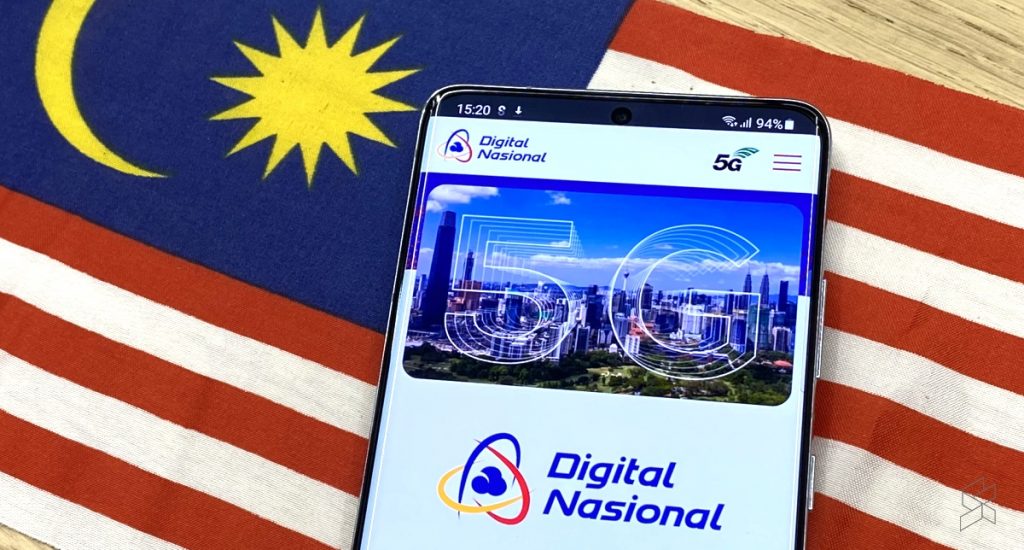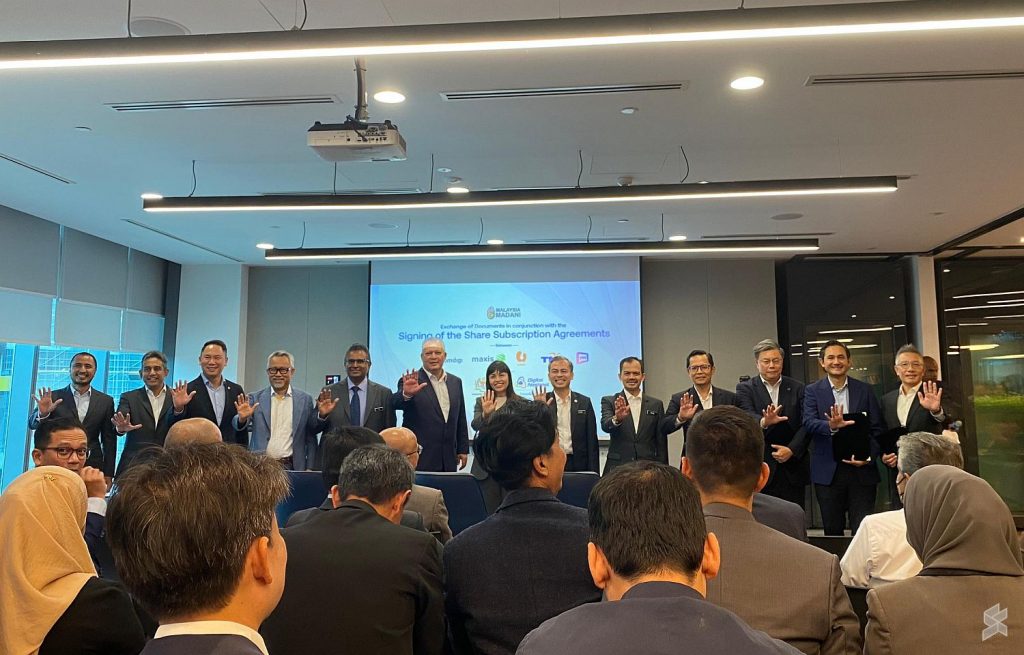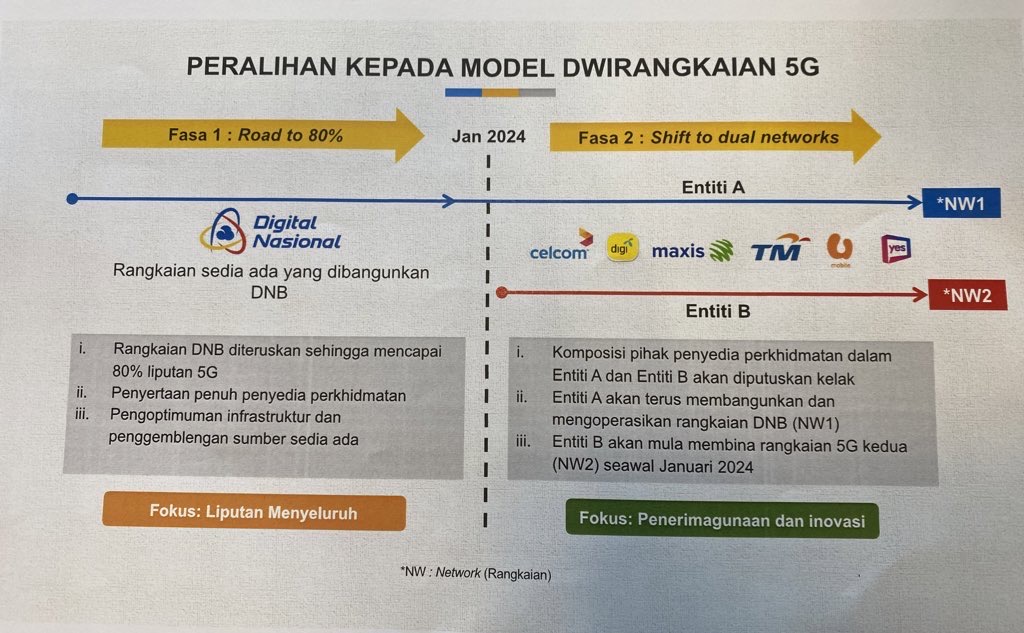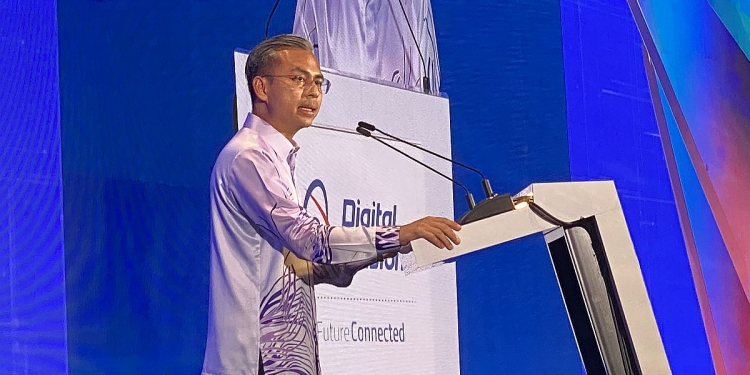[ UPDATE 20/4/2024 17:20 ] Digital Nasional Berhad refutes CNA’s report alleging a lack of transparency when it comes to 5G contracts.
===
Channel News Asia (CNA) has published a report highlighting grave concerns affecting Malaysia’s 5G rollout. After telcos signed a share subscription agreement to take up a collective 70% stake in Digital Nasional Berhad last year, it seems that the telcos and DNB have failed to reach an agreement due to several issues.
There are also no signs of the establishment of a second 5G network which was promised after DNB achieved its 80% 5G population coverage target almost four months ago.
Deep mistrust due to lack of transparency?

According to CNA, the complex government-sponsored settlement agreement reached between DNB and the five major telcos has broken down. After the signing of the SSA, each telco injected RM233 million into the country’s sole 5G network and the deal was pending due diligence and approvals from relevant authorities, financiers and certain vendors. The due diligence was supposed to be completed by late January but it has been dragged on for months.
It was reported that both sides have yet to agree on the so-called condition precedents (CP), which is legal parlance for events that must take place before a contract can come into effect. This included the appointment of directors who will represent the telcos on DNB’s board and the completion of three confidential audits on the state-owned 5G network by external experts. The audits would look into DNB’s financial standing, due diligence on contracts signed by DNB and technical evaluation of its 5G systems.
Citing a senior source at the Ministry of Finance who is close to the matter, the report said the audits are still ongoing but there’s no composition of the board. The source added that nothing is moving as the telcos are having doubts about the path forward.

CNAs’ report said there’s a deep mistrust between proponents of DNB and a majority of the telcos over the secrecy in the internal operations of DNB especially on the award of the 5G network contract to Ericsson and other arrangements with third parties. A chief executive of a financial consulting firm engaged by one of the major telcos told CNA that the issue with DNB has always been about transparency and that remains a hurdle.
It highlighted that transparency issues were a major reason why the parties have failed to reach an agreement on the CPs to settlement agreement signed in December 2023. The report also added that DNB has insisted that only the board’s directors will be allowed access to review the ongoing due diligence to its affairs and the findings must remain confidential and not be shared with the telcos.
It added that telcos are seeking clarity on other contracts signed by DNB which include a controversial deployment of a lucrative cloud services platform awarded by DNB back in March 2021.
Does DNB have funds to continue rolling out 5G?

Before the share subscription agreement is finalised, DNB is still 100% owned by the Malaysian government. It was reported that DNB had borrowed RM2 billion from banks to fund its 5G rollout along with other financing arrangements including vendors. However, the government’s guarantee is said to be expiring in December 2024.
It is said that DNB officials are pressuring the government as the company could face a cash crunch in the coming months unless the government injects more funds into the state-owned 5G network.
A Ministry of Finance official told CNA that unless the merger with the telcos is resolved soon, DNB will need to extend the government’s guarantee. It was also mentioned that DNB has provided feedback that the bankers were getting nervous.
Since December, DNB has purportedly exceeded its 80% 5G population coverage target and it was named the world’s most consistent network by Ookla during MWC 2024. At the time, Fahmi said Malaysia’s achievement has proven all naysayers wrong with its unique approach to deploying 5G through a state-owned special-purpose vehicle.
Since then, there has been a lack of updates on the 5G deployment. It isn’t clear if DNB has deployed or exceeded its 7,509 5G sites. Another concern is the lack of in-building coverage for 5G which needs to be addressed as soon as possible. Despite claiming over 97% 5G population coverage in Kuala Lumpur, users still struggle to get 5G reception indoors at most shopping malls including The Exchange in TRX.
Still no signs of a second 5G network

Fahmi recently said that the second 5G network will be delayed as they are still waiting on the formation of the DNB board since the share subscription agreement was signed in December. Last month, Fahmi said the 5G Task Force would convene to discuss the dual 5G network model but there were no new updates.
Who is funding DNB?
DNB was established as a 5G single wholesale network operating on a cost recovery model that relies on telco’s 5G access payments to fund its operations.
Previously, the government and DNB have iterated that no public funds will be used to fund the 5G network except for the initial RM500 million by MOF as a start-up investment. However, Communications Minister Fahmi Fadzil said in December 2023 that the entire 5G network was bourne out of public funds as the reason why telcos shouldn’t charge extra for 5G services.
The CNA report indicated that DNB’s 5G rollout is estimated to cost Malaysian taxpayers just over RM16.5 billion. It said the current stalemate situation has stirred a debate about whether all parties should just push ahead with the SWN model with telcos acquiring 70% stake or simply dispose of a large stake to an interested foreign entity.







